
A parallel session of the Belt and Road Education Dialogue—“Student Mobility and Cross-border Communication”—was held at Beijing Kaiwen Academy on November 28th, 2017. Ma Tao, vice president of National Institute of Education Sciences (NIES), and Zhou Zhaoyu, executive principal of Beijing Kaiwen Academy attended the session and made opening speeches. Wang Dianjun, principal of Tsinghua University High School, also attended the session and made a keynote speech. Leaders from China’s Ministry of Education and China Scholarship Council, as well as over 30 government officials, experts, and scholars from a dozen Belt and Road countries, including Iran, the Philippines, Saudi Arabia, Ukraine, and Nepal, attended the session and delivered wonderful speeches.
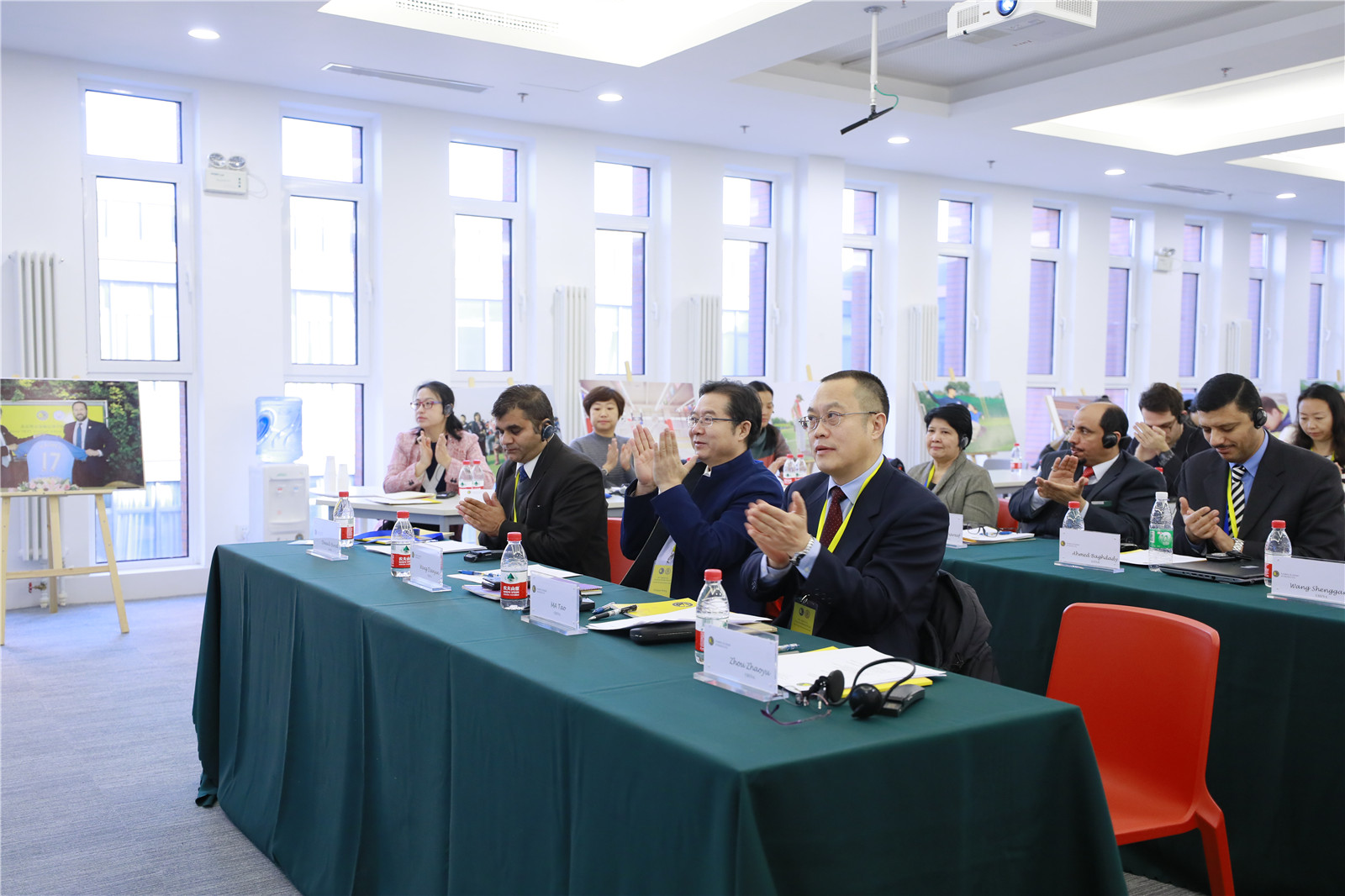
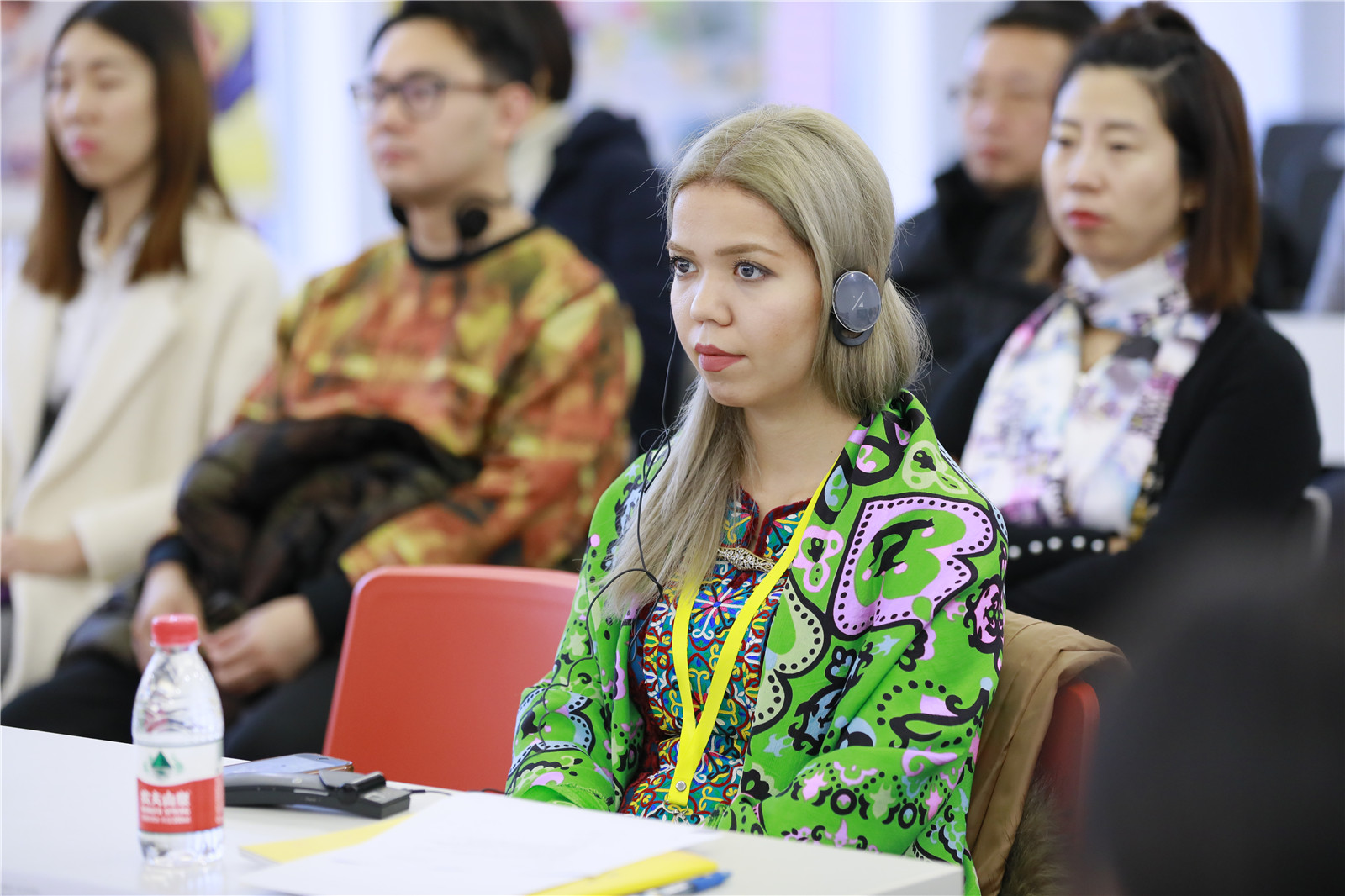
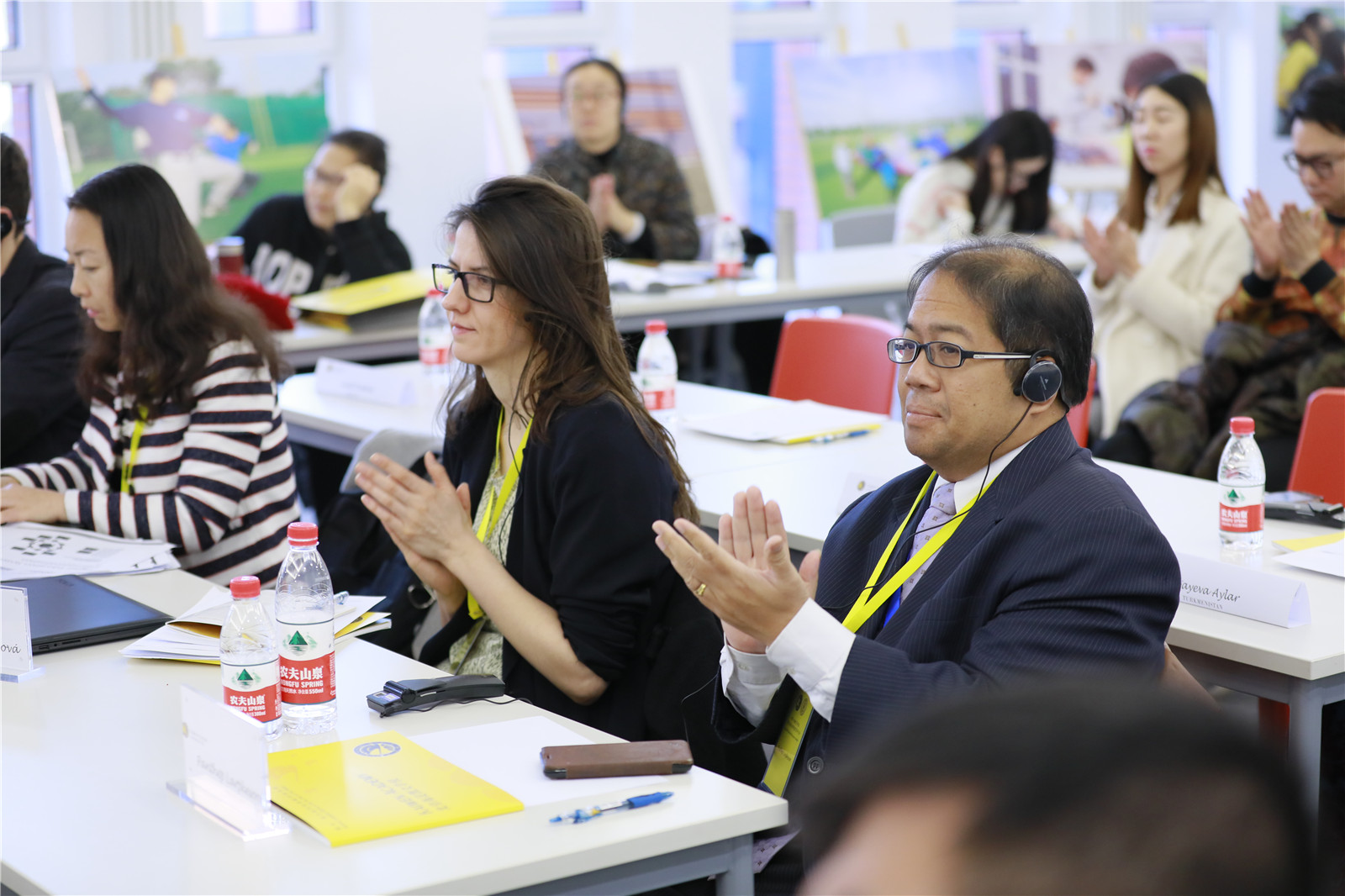
This session was marked another high-level, in-depth dialogue and exchange in the educational field among B&R countries after the Belt and Road Forum for International Cooperation. With adequate preparation and careful arrangement, Beijing Kaiwen Academy successfully organized the parallel session.
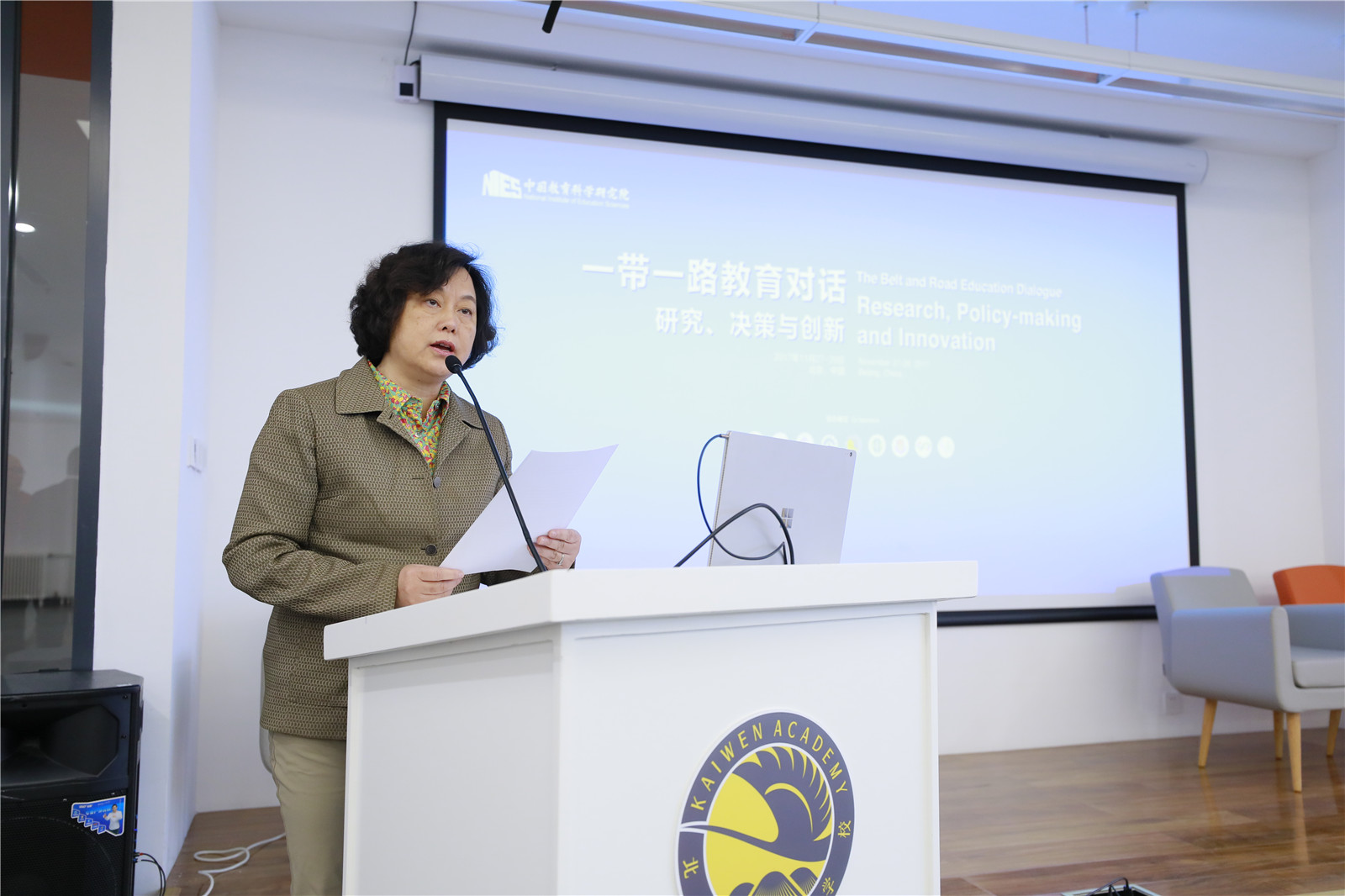
Zhou Zhaoyu, executive principal of Beijing Kaiwen Academy
In the opening speech, Zhou Zhaoyu, executive principal of Beijing Kaiwen Academy, said that cross-border communication is an important way for exchanges between diverse cultures, a key indicator of a country’s openness and inclusiveness, and a teaching method that Kaiwen has been exploring and practicing. “We take our students out to see the world, while bringing in overseas students, teachers, and quality education resources. The mutual exchanges have constantly promoted our understanding of and respect for different cultures. The exchanges have also helped people better understand and inherit their own national cultures and historical traditions and contribute to the progress of world civilization,” said Ms. Zhou.
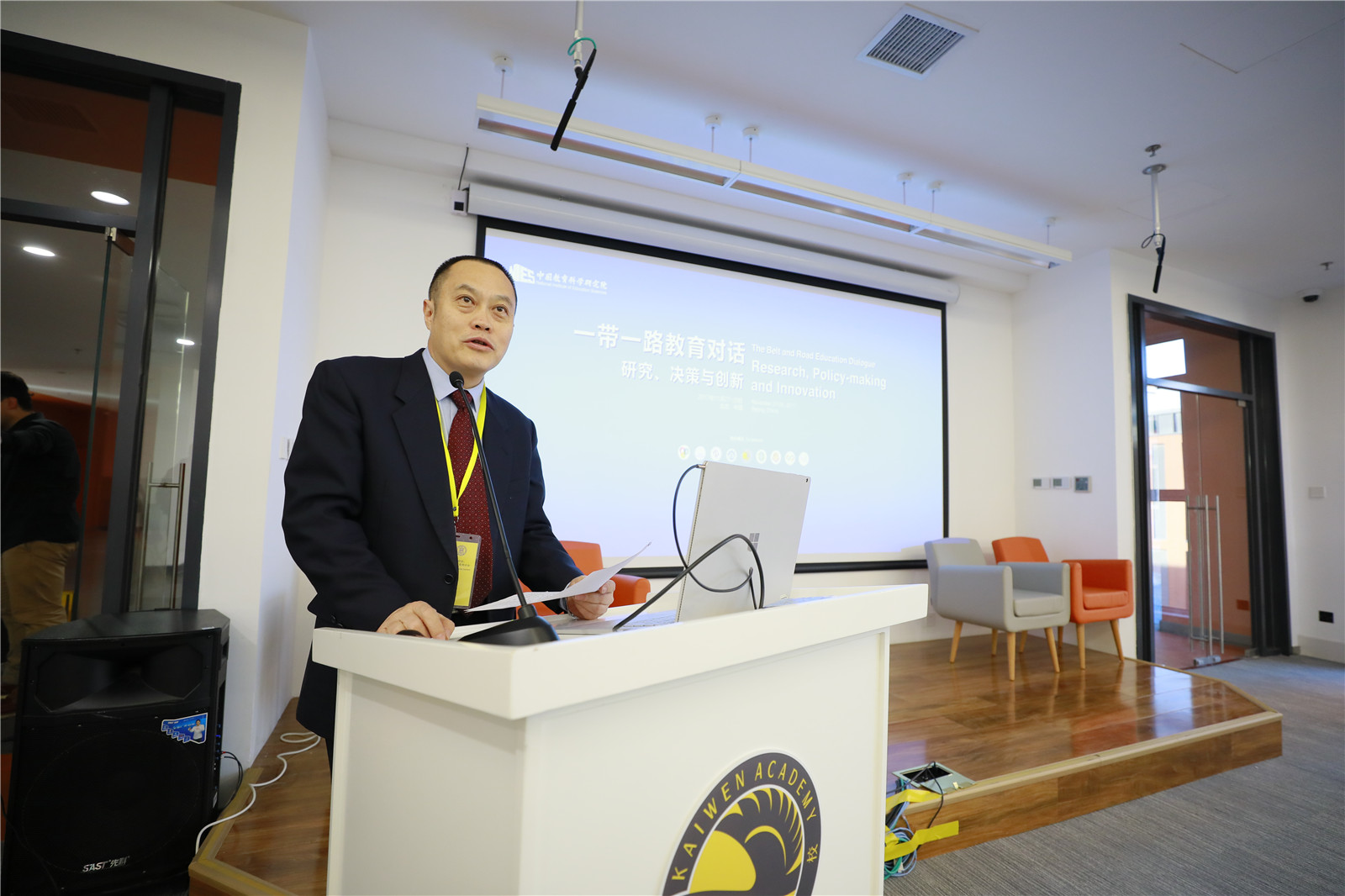
Ma Tao, vice president of National Institute of Education Sciences (NIES)
Ma Tao, vice president of National Institute of Education Sciences (NIES), spoke highly of the significance of this session. “Education is an important bridge for international exchanges,” he said. “With the progress of the Belt and Road construction, countries along the routes will step up education cooperation, share their experience in developing education, and display the highlights of their respective cultural education. This will become the consensus and commitment of educational communities of the countries that participate in the Belt and Road construction.”
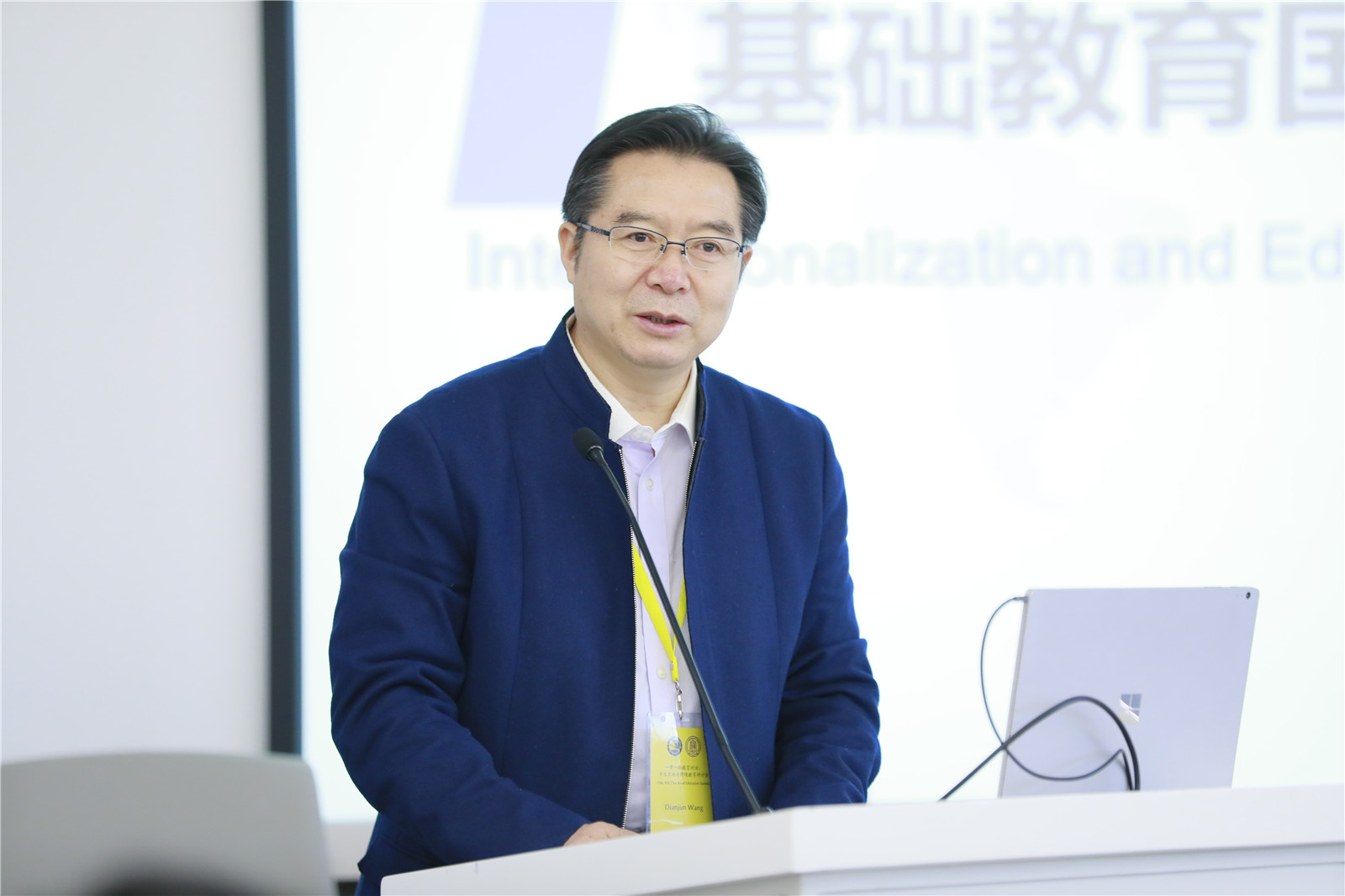
Wang Dianjun, principal of Tsinghua University High School
In his keynote speech titled “Internationalization of Basic Education and Educational Innovation”, Wang Dianjun, principal of Tsinghua University High School, pointed out that internationalization is a two-way communication process. To foster students’ patriotic feelings and international perspectives, a school must absorb advanced international educational concepts and optimize its own educational methods. Principal Wang also analyzed the challenges facing international schools in talent training in “bilingual education”, “curriculum system”, “multiculturalism management”, and “family-school relations.” He called for more research support from the educational circle and governments.
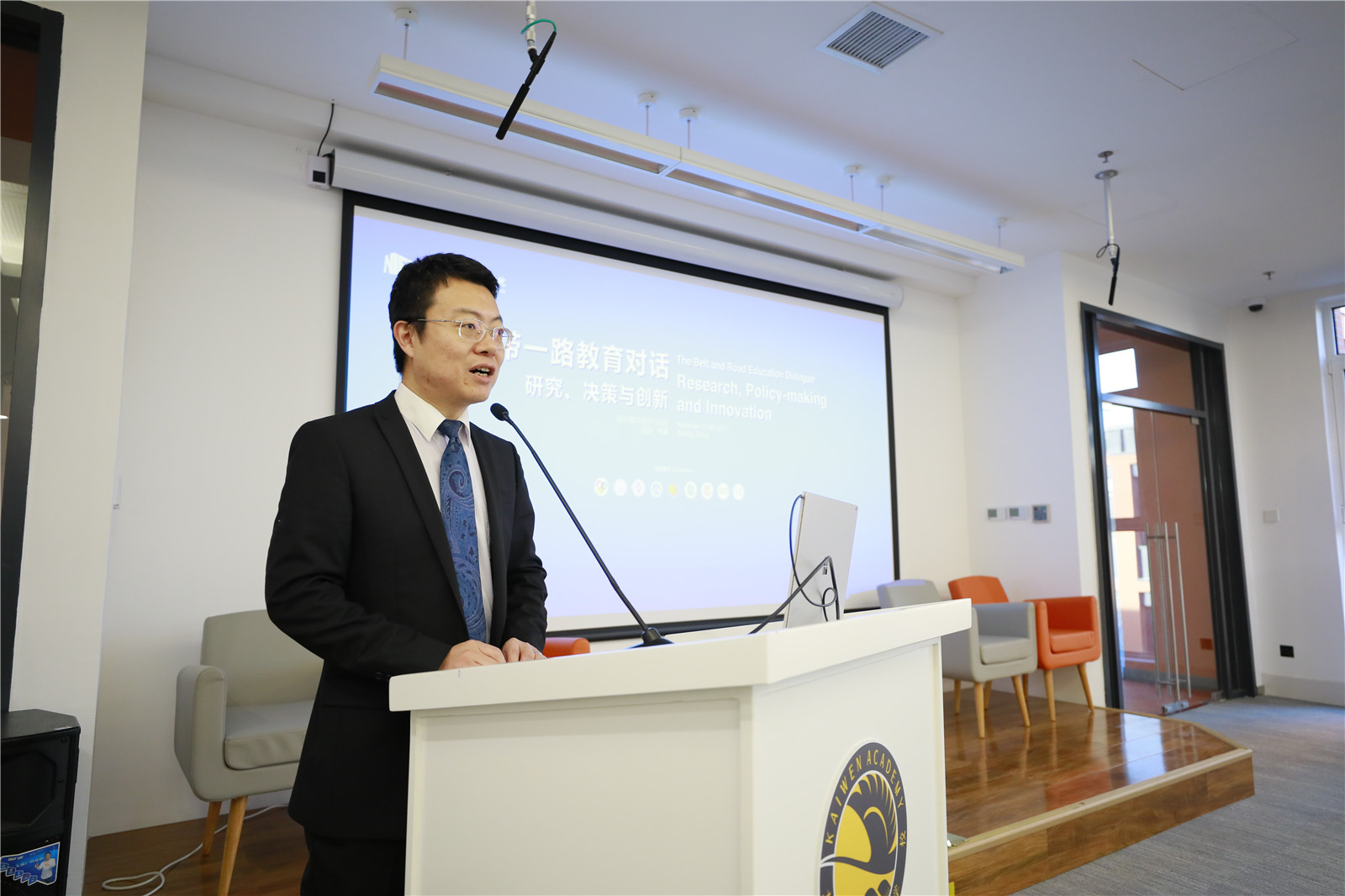
Wang Shi, academic principal of Beijing Kaiwen Academy, presided over the session
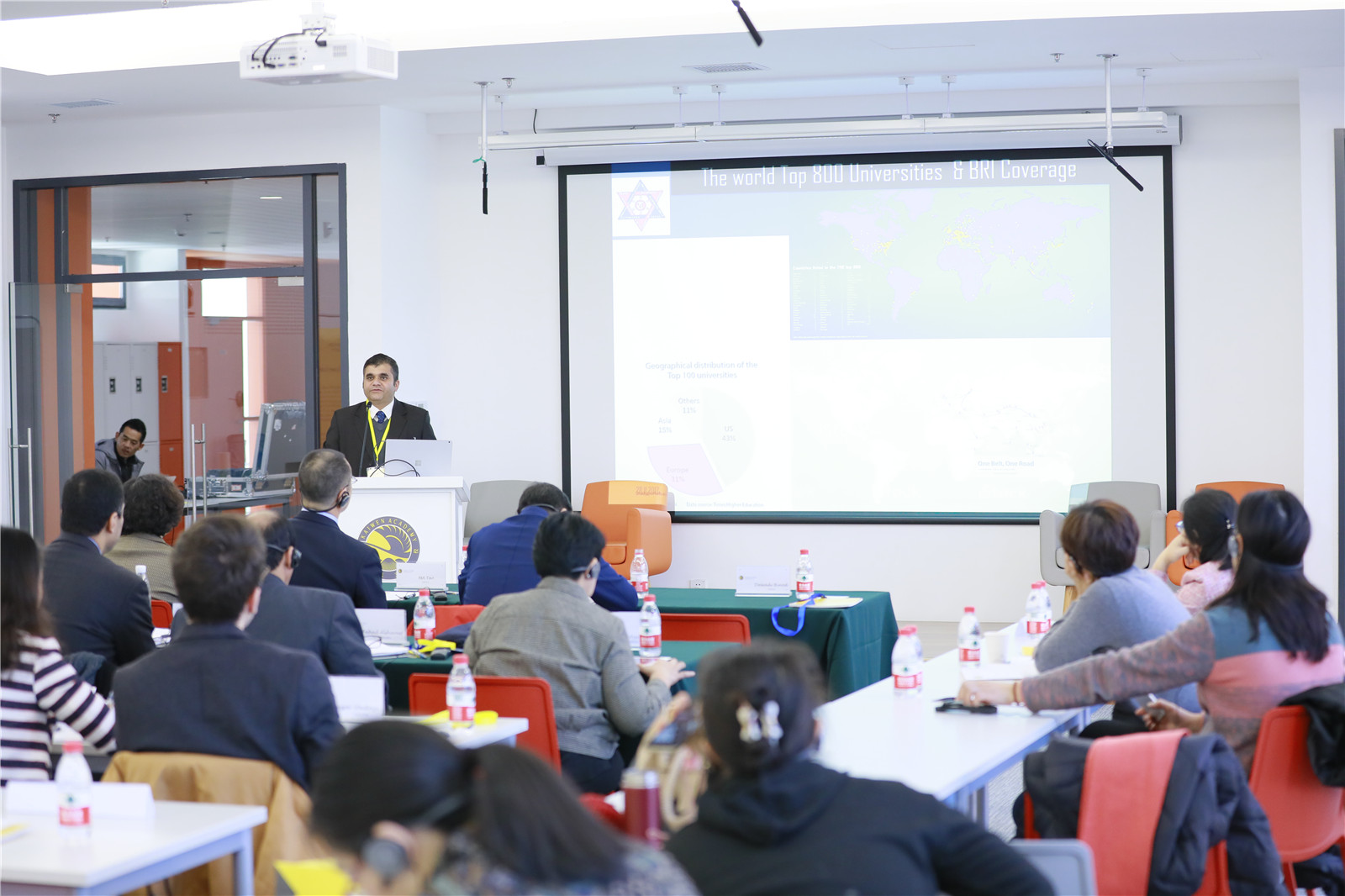
The session staged a total of three forums that focused on “Student Mobility”, “Cross-border Education”, and “Education Development and Future Trends”, respectively. From various angles, the distinguished guests present summed up the achievements of the current international education exchanges, analyzed its practical significance and challenges, and envisioned more possibilities for the future of the international education.
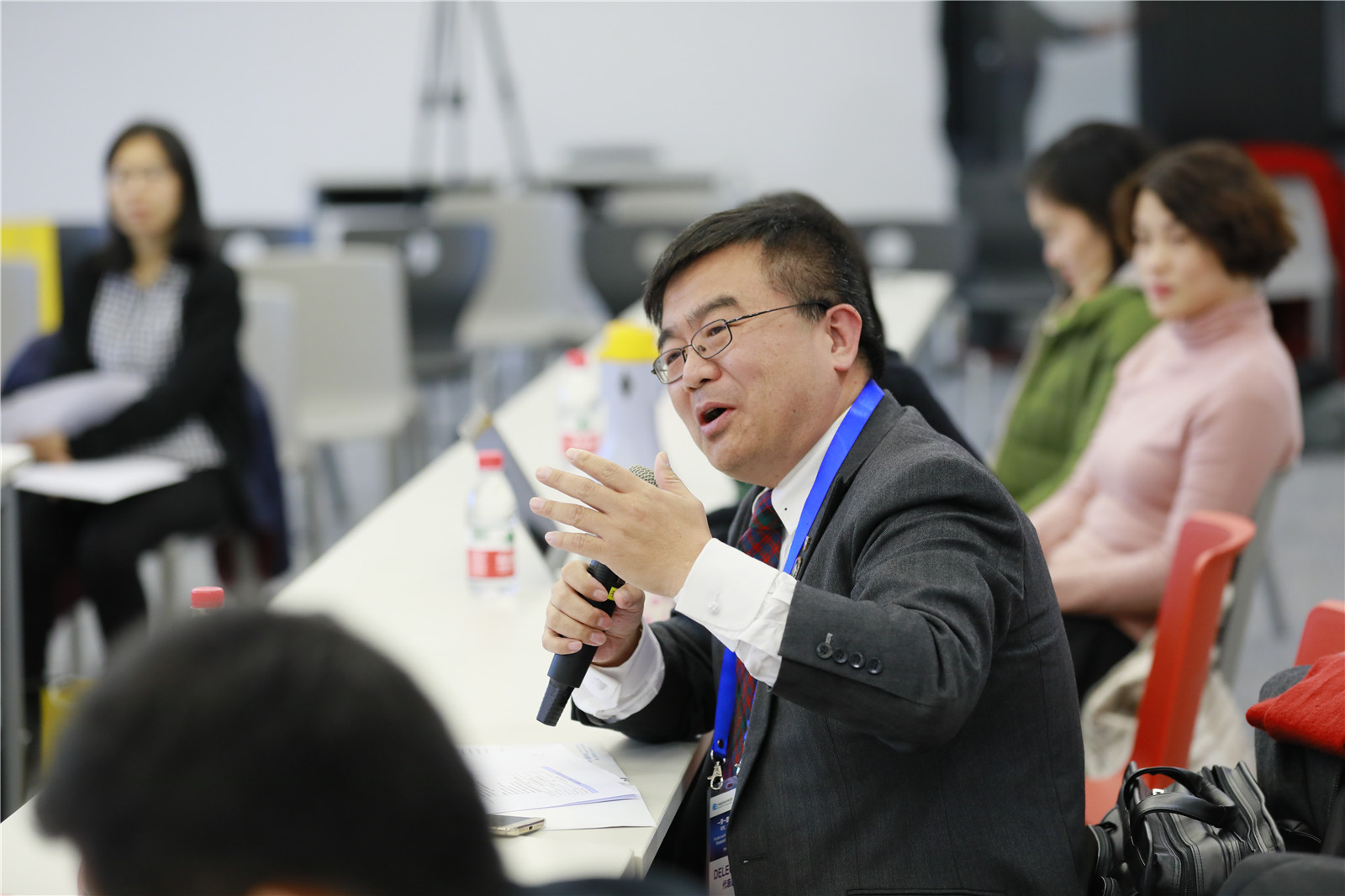
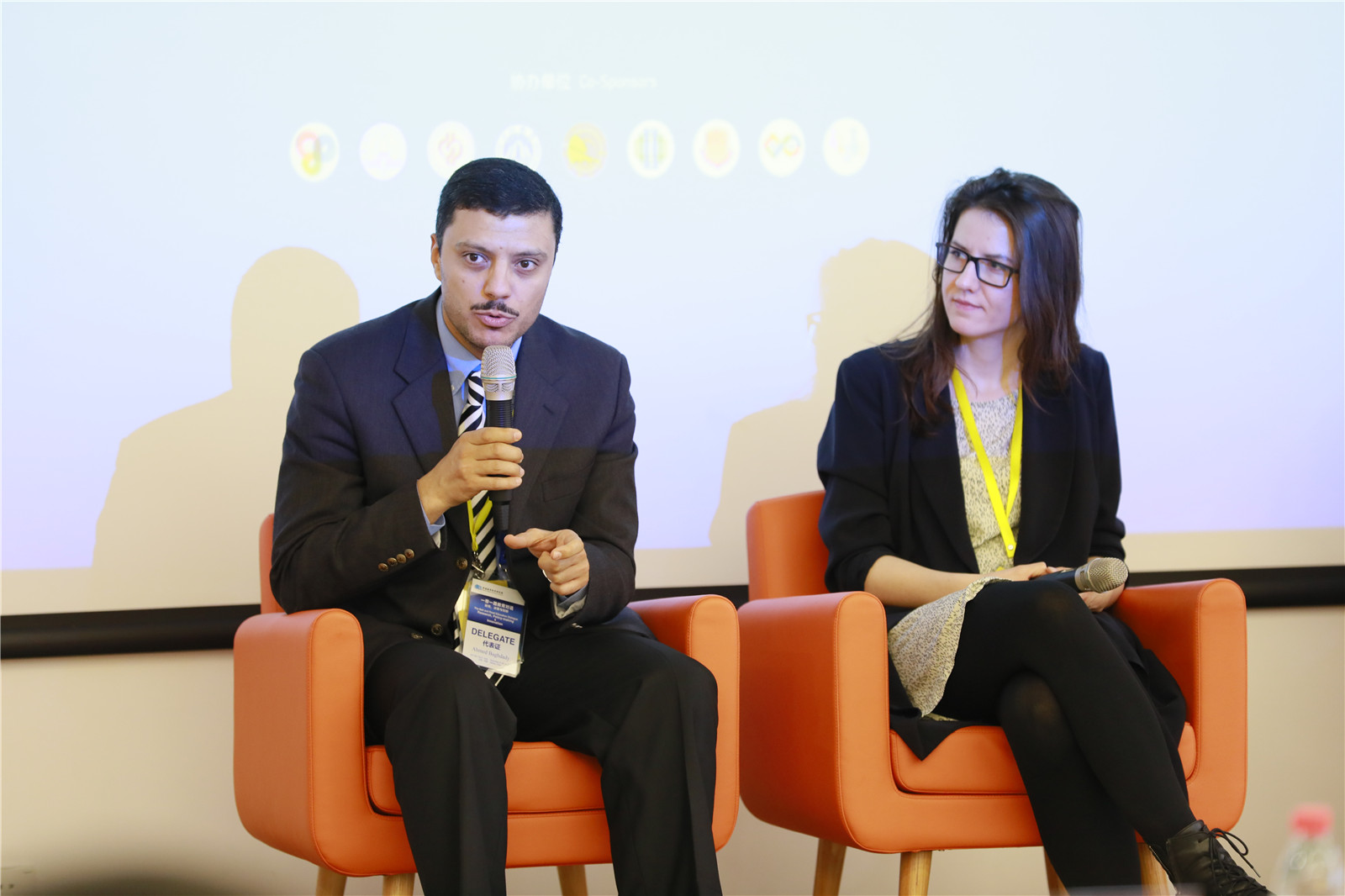
Seyed Hossein, vice president of the University of Tehran, Iran, said that although the mobility of Iranian students is increasing, the pace is very slow, and there are also many challenges in promoting cross-border education, such as language barrier, culture shock, and poor family economic conditions. Iegor Stadnyi, an education policy analyst at the CEDOS think-tank, Ukraine, raised the question of how to better avoid brain drain while promoting the flow of international talent. Dawadi Binod, a professor from Tribhuvan University, Nepal, said that isolated and separated educational and scientific research is currently the biggest problem. The Belt and Road Initiative provides a good bridge for connectivity and more opportunities for cooperation. Platforms of this kind are of great significance, especially for underdeveloped landlocked countries such as Nepal.
Mr. Wang Shenggang, deputy secretary of China Scholarship Council, shared a set of data: In 2017, the council aided a total of 58,000 students from 181 countries, 60% of which are from B&R countries and 70% of which are graduate students. Scholarship from the Chinese government has guided and promoted international cooperation and exchanges.
NIES Vice President Ma Tao said, “Nowadays, international education exchanges and cooperation is more a trend than a demand. Today’s meeting has promoted the further understanding between countries and we have learned from each other. This will certainly bring about further development and cooperation in academic research and exchanges in the future.”
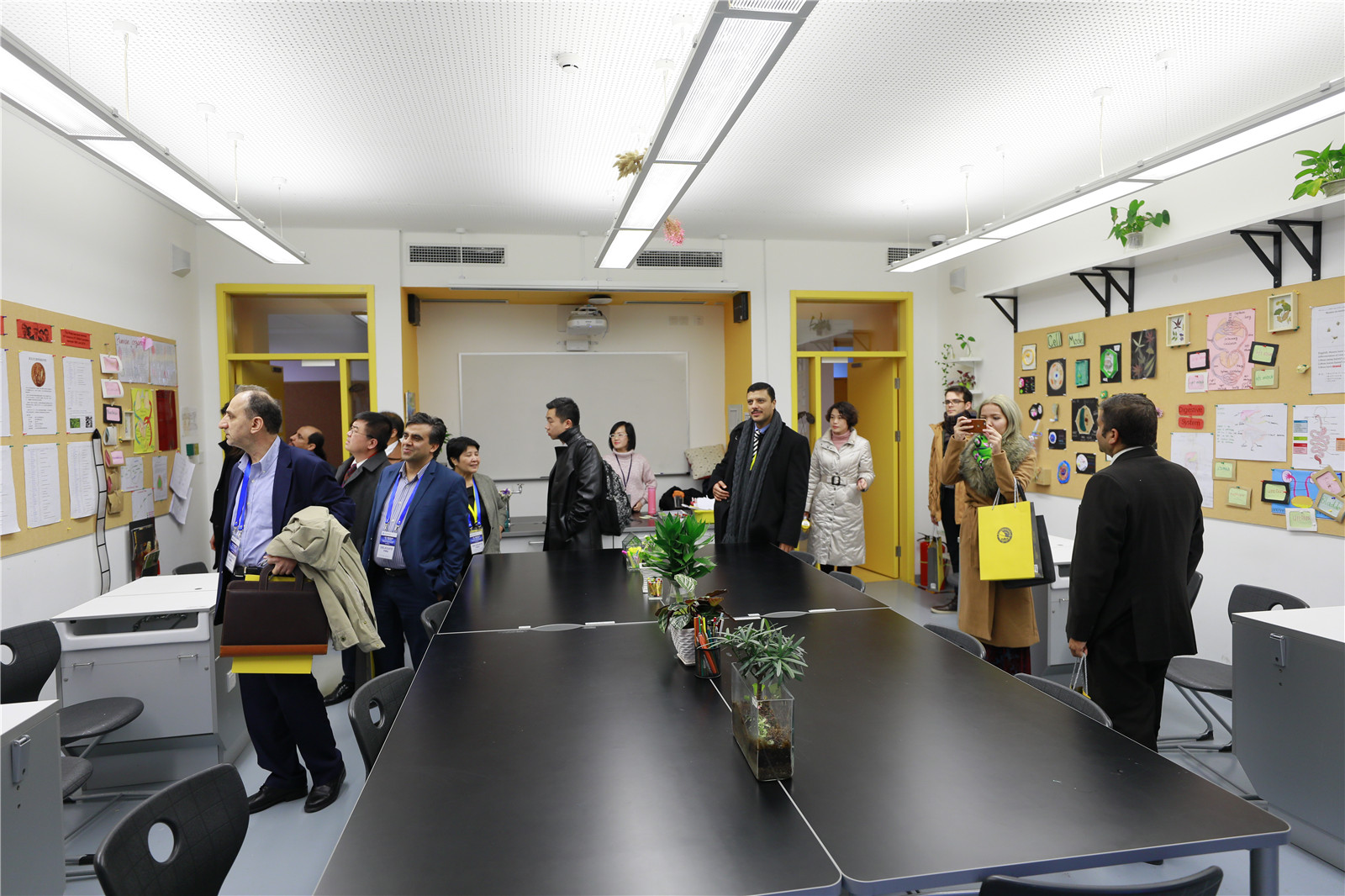
After the meeting, accompanied by the school’s personnel, the guests visited the beautiful campus of the Kaiwen Academy (Haidian). As a private bilingual school that provides education of international quality, Kaiwen Academy (Haidian) has been striving to practice Principal Wang Dianjun’s “Three Concepts of Elite Schools.” The school has conducted educational reforms through innovations and cultivated top-level talented people while fulfilling its social responsibilities. “Holding high-level international forums and academic conferences is an important part of Kaiwen’s effort to increase international educational exchanges. We will continue to rely on Kaiwen’s strengths to cultivate more world citizens with Chinese roots,” said Ms. Zhou Zhaoyu, executive principal of Beijing Kaiwen Academy.